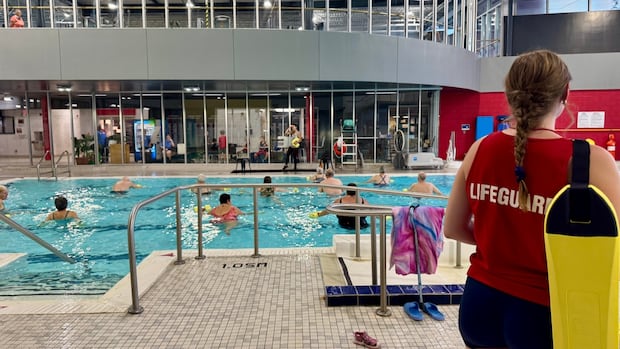The Vancouver Police Department’s longest-serving sergeant was demoted and suspended Tuesday after admitting to sexually harassing five women, including two fellow officers and three students at the universities where he taught.
Former provincial court chief judge Carole Baird Ellan also ordered the VPD to adopt new sexual harassment policies, considering impact statements given by colleagues who said Keiron McConnell’s unwelcome sexualized messages left them feeling degraded and anxious.
Presiding over the conclusion of Office of the Police Complaint Commissioner disciplinary proceedings against the 56-year-old, Baird Ellan read from a redacted version of submissions from the officer whose complaint sparked an internal investigation into McConnell’s actions.
“Absolutely nothing in my career has had the long-term negative impact on my mental health, physical well-being, sense of community, trust in the Vancouver Police Department, friendships and overall wellness than the experience of this police allegation and subsequent investigation,” the officer wrote.
“It has altered my past, my present and my future.”
McConnell admits to sending unwanted sexual messages
Although the woman—whose name is protected by a publication ban—was the first to come forward, her complaint was dismissed as part of a deal McConnell reached last month on the first day of what was supposed to have been a four-week hearing.
Baird Ellan read her decision in front of a packed hearing room full of both current and former police officers as well as representatives of a group of women trying to bring a class action lawsuit against the province’s municipal police forces.
McConnell — who first joined the VPD reserves in 1988 — was promoted to sergeant in 2004, becoming part of the leadership of the VPD’s gang squad while also earning a doctorate that saw him teach at Royal Roads, Kwantlen and Simon Fraser universities.
The complaints concern incidents that took place between 2015 and 2019.
According to an agreed statement of facts, McConnell admitted to sending unwanted sexualized messages to two female officers who worked under his command when he was one of the leaders of the gang squad.
“The content included sexual remarks about her underwear, her sexual preferences and his sexual fantasies,” the statement reads in relation to one of the officers.
“[McConnell’s comments caused [her] to feel degraded, and she suffered anxiety as a result. She was concerned about raising the issue with him because of his position in the VPD.”
Similar concerns were echoed by the three adult students targeted by McConnell — two of whom had taken courses with him prior to the incidents that led to complaints.
Baird Ellan read from some of the texts in which McConnell asked one of the officers what she was wearing, apologized for having “a crush,” and then said: “I’m sorry I crossed the line. I think you[‘re] hot and acted like an idiot… It was a thong, though…Cmon.”
As she considered the case, Baird Ellan noted McConnell’s use of words like “secrecy,” “inappropriate,” and “offensive” in texts where he indicated he had “crossed the line.”
“If he tried to avoid direct supervisory situations, he was clearly not successful in avoiding power imbalances and was nonetheless aware of the impropriety of many of his interactions,” she said.
‘My hope is that women find the courage’
The public hearing has generated discussion about the way sexual harassment complaints are handled both within the Vancouver Police Department and under the Police Act legislation that guides the OPCC’s proceedings.
In her impact statement, one of the two officers McConnell admitted to harassing said the process had taken a toll.
“No woman, whether a professional or as a member of the public, should ever have to choose between their career aspirations and standing up for themselves and doing what is right,” she wrote.
“This type of sexualized behaviour is wrong and completely unacceptable, especially by anyone who is in a trusted position of power. My hope is that women find the courage to speak up against inappropriate and unwanted sexual behaviour such as this.”
Demotion is considered the most serious punishment short of dismissal, and the maximum suspension is 30 days. Baird Ellan noted the seriousness of the punishment by those standards.
Outside the proceedings, Helen Irvine, one of six current and former female officers involved in the class action lawsuit, said she was disappointed by the outcome — though not surprised.
“I would ask one question,” she said.
“Can you think of another industry, another work industry where someone would be able to repeatedly sexually harass people who you hold a position of authority over and keep your job — especially when you hold the power of authority over the public?”







